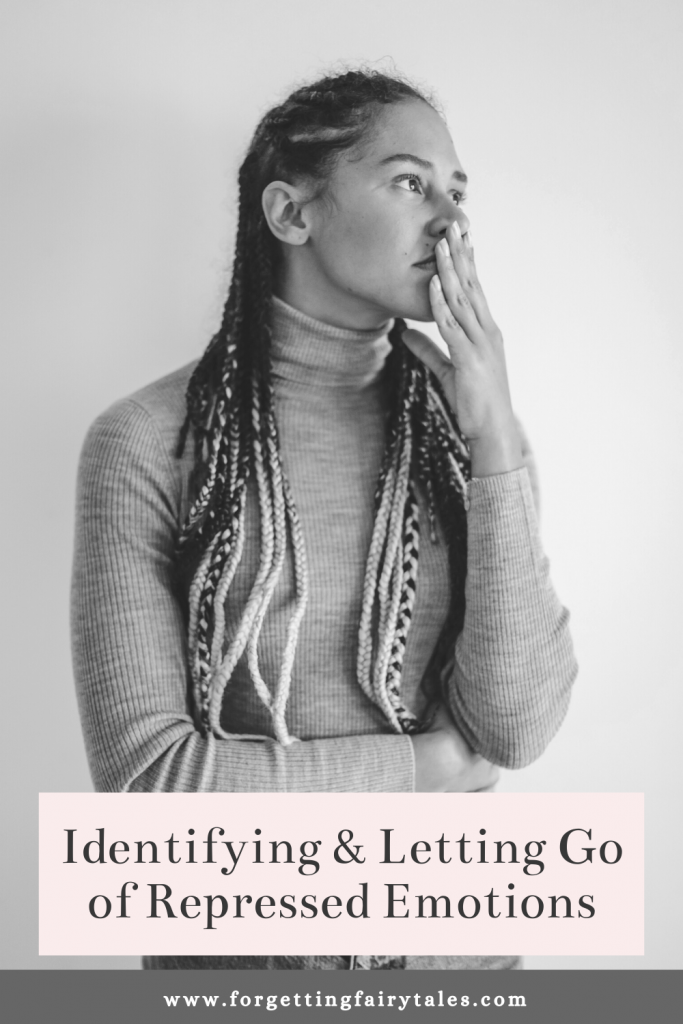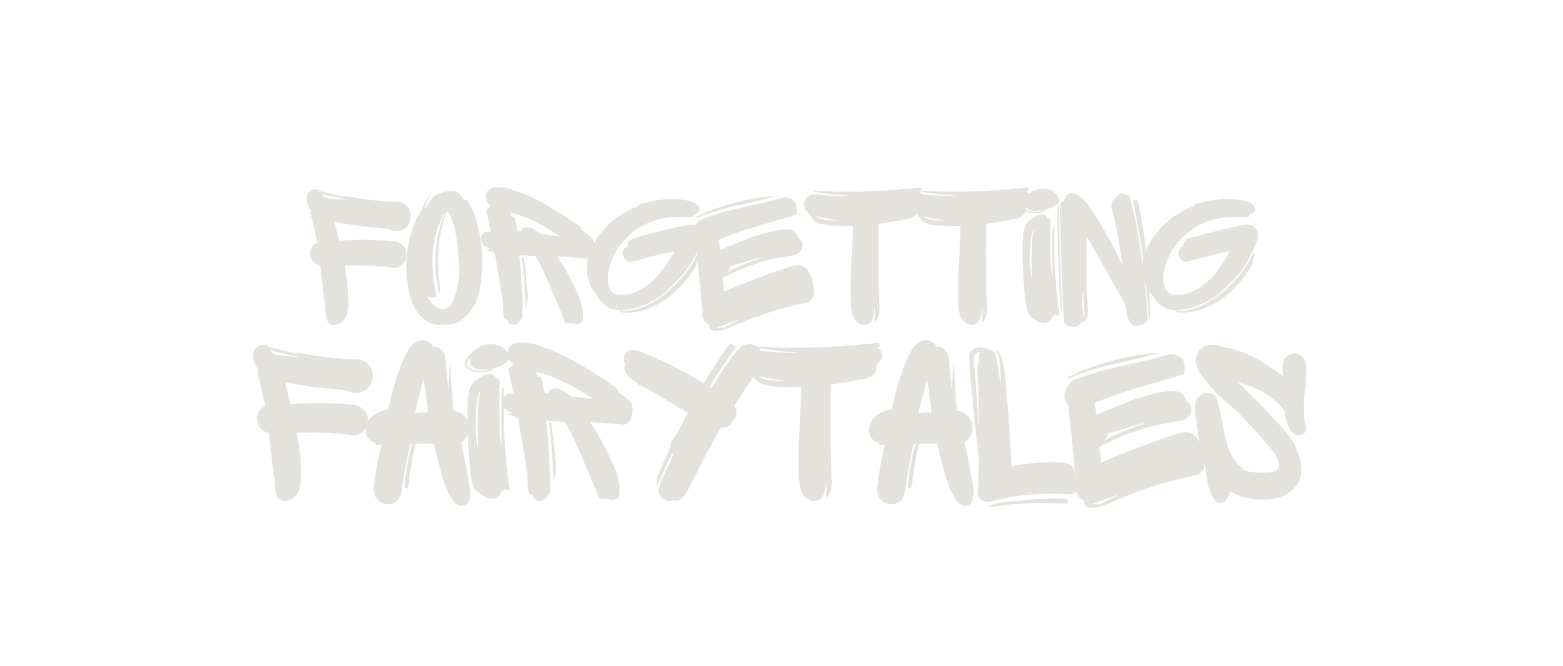In todays post we’re going to look at repressed emotions, or more specifically – how to let go of repressed emotions. See, you may not be aware that you’re holding these things back. Repressed emotions aren’t intentional – but they are damaging.
The most common repressed emotions are ones like anger, frustration, sadness, fear or disappointment. Emotions that are seen as “negative” but they’re not – not really. They’re perfectly natural and normal.
So by the end of this, we’re going to pull back the wool and allow yourself to FEEL again. We’re going to lift the weight, enabling you to really move forward. Sounds good? It will be if you let it, trust me. So, let’s start from the top.
What Are Suppressed Emotions?
So first off, let’s start with suppressed emotions. It’s important to understand the difference between those that are suppressed and repressed to also know what helps and harms you. (And yes, I know, the two are basically twins! It all sounds very potentially confusing, but trust me – it’s not!)
In a nutshell, suppressed emotions are emotions that you intentionally hold back.
So, maybe you’ve recently been through a breakup, you think about it in a moment where you REALLY don’t want to – maybe at work, or when you’re supposed to be enjoying a family meal…
Instead of allowing yourself to get down in that moment, you suppress the emotions, force them out your head (usually by not feeding the thoughts and memories and instead focusing on something else) and can later then release the emotions at a more appropriate time…
This may be on the phone with friends, or once back home with a family member, maybe even though a journal, or with a box of tissues and a sad movie on your own that night, or later that week. Whichever way works with you.
Suppressing Your Emotions Isn’t Always a Bad Thing
Providing you let them out at a more appropriate time, it’s actually okay to suppress your emotions.
In fact, it can be GOOD to suppress them if it means you aren’t letting the situation that caused them, take over your life and the affect the things that are important to you.
Suppressing your emotions in times of needs allows you to keep moving forward with your life. To get back to normal life, despite whatever’s happened to bring you to that point where you’re struggling.
The key is just making sure that you don’t hold them back, continuously. You can’t constantly cover over your emotions, distract yourself, avoid feeling them.
They won’t permanently go away and they need to be acknowledged, felt and worked through in order for you to move on.
What Are Repressed Emotions?
Repressed emotions are a little different than suppressed emotions. Repressed emotions are not emotions that you purposely avoid at a set time, or in a certain situation – pushing them out until a more appropriate moment to deal with them, or because you don’t quite know how to deal with them at that time. Instead,
Repressed emotions are those that you unconsciously avoid – you’re doing it without even realising it.
This means that your emotions are never processed. Never processed – yet still remain, still linger. As a result of this, they come out in other ways. So let’s what that might look like…
Signs You’re Repressing Your Emotions
How do you know if you’re repressing your emotions? It’s a good question. Have a read through some of these key signs and see how many ring true to you. It will certainly give you a better indication.
1) You think that anger and sadness are bad emotions.
You don’t want to feel them. Perhaps you think it’s weak or shows a lack of control if you feel them. As a result of this, you rarely cry or shout.
In fact, you feel the emotions of anger and sadness less and less now. Instead, there’s a sense of nothingness. There’s no reaction at all. Nothing left.
2) If you do get angry or sad, it can often result in a big blow up or overreaction.
It also usually happens over something seemingly small. So maybe you’ve gotten through some really difficult times, there’s been no reaction, no emotions, no nothing… then you’re carrying the trash out and the bag breaks all over you and it’s like the worst thing in the world!
3) You always say you’re fine.
But really, you feel numb. You’re not “laid back” as you may label yourself. Instead, you’re actually troubled. Depression (mild or severe), anxiety, stress and low self-esteem is all common with emotional repression, because by keeping things in, everything starts to build up.
4) You get uncomfortable talking about how you feel.
You feel uncomfortable when someone asks you how you feel about someone, something or a certain situation. You might feel blank, speechless, powerless or confused.
Depending on what the subject is, you may also get irritated, snappy, angry at the person even – despite is being perfectly reasonable for them to ask, and usually, when they are only asking out of care.
5) You rarely – if ever – open up to other people.
You prefer to keep things private. Particularly if you’re unsure if you fully trust someone, or the conversation starts to steer towards things that are more personal.
You therefore also feel uncomfortable around highly emotional or open people. When they share things with you, you may be unsure how to respond, find it difficult to verbalise if you relate.

6) You often hide how you feel inside.
You can seem open and chatty, fun to be around, especially with strangers. But the real you is hidden. As are your true emotions.
You could be the “life and soul of the party” joking around, yet inside feel sad and empty. Yet most people couldn’t tell.
You struggle with intimacy, prefer to keep your friendship circle small, and may also have difficulty forming romantic relationships – especially ones that are meaningful.
7) You look for ways to escape.
You might go through phases where you heavily rely on an “escape” – whether that’s immersing yourself in a hobby, a tv series, a book, some form of activity – like running.
You may also fall into self-destructive behaviour, using alcohol or drugs. Or perhaps do things like oversleep, or overeat. Struggling with weight issues is a common sign of emotional avoidance.
8) You like to feel in control… or can lose all care if you’re out of control.
You might feel a need to always be in control of things – as a way, actually, of trying to control your emotions.
On the flip side, you may lose all care and control altogether, simply allowing things to happening, running with whatever, because you just can’t be bothered anymore.
Your mind might be foggy, unclear, making you act irrationally sometimes. You may find you’re especially forgetful or absent-minded. Another common sign.
9) You struggle to speak up when something is wrong.
You often don’t verbalise how you feel. If someone does something that bothers you, you usually don’t say anything. You’ll just start to distance yourself from that person or “get back at them” in another way, at another time. You avoid confrontation or uncomfortable situations.
10) You’re often very hard on yourself.
Last but not least, your thoughts are generally very negative or critical – of both yourself and others. You may not be aware of these, but if you were to take note of them as they happen, you could really start to see them.
Why Do We Repress Our Emotions?
So now we’ve got clear on what repressed emotions are (and how they differ from those that you consciously suppress), maybe you’re starting to spot the signs and identifying that you COULD well be doing it.
But why? Why do we repress out emotions? I mean, we aren’t even usually aware that we’re doing it, so where is it coming from? Well, this goes back to your childhood and upbringing. If you your parents or carers:
- frequently talked about their feelings
- encouraged you to share how experiences made you feel
- normalised your positive and negative emotional experiences
- didn’t judge or criticise your emotional expressions
… then you’re less likely to repress your emotions.
On the flip side if your parents carers:
- rarely showed emotion or talked about their feelings
- shamed or punished you for expressing your emotions
- told you your emotions were wrong or denied your experience
… then you’re far more likely to repress your emotions.
It’s all about what you’re used to, you see. Past experiences also heavily come into it. So let’s take relationships for example.
Repressed Emotions In Relationships
If you express your emotions in a relationship and it often creates a negative outcome, you’re far more likely to repress your emotions.
So, perhaps you try to speak up about the things you’re not happy about and it creates arguments. Or you try to talk when you’re feeling low, and your partner doesn’t listen or discounts what you’re saying and how you’re feeling.
Eventually, and without even realising it, you’ll start to associate expressing emotions as a BAD thing. Without being able to express them, they start to all bundle up inside, until eventually, they’re pushed out of your mind.
You’re living, but no longer fully FEELING.
And this is where it gets dangerous, because even after the breakup, you’ll – in most cases – continue to then repress your emotions and have the same subconscious feelings around it all.
Repressed Emotions Stop You From Moving Forward
Repressed emotions will not only stop you from getting over a breakup, but they’ll also stand in your way when it comes to forming new connections.
I mean, think about it – if you don’t allow yourself to feel the pain after the end of a relationship, you won’t be able to truly get over it. You’ll be wearing a mask. Hiding away. Not facing up to it.
When you then go to date and are trying to progress things with a new person, if you’re unable to express how you feel about them, you’re going to come across as disinterested.
And if you’re unable to fully let someone in, you’re missing out on a key, and very important part of building a bond – that emotional connection.
So until you get to grips to it, your life really is put on hold. Or if not on hold, you’ll find a hell of a lot more problems crop up, and you’re actually not all that happy in yourself… even if you try to convince yourself that you are!

How To Let Go of Repressed Emotions
So what do you do? How do you let go of repressed emotions? Well, the first part is simply recognising that you’re doing it – becoming aware that you’re repressing your emotions. This is often the hardest part.
Hopefully this post has helped you to recognise the signs, and if it does sound all too familiar, don’t brush it off. You’re not broken or damaged. There’s nothing wrong with you. You just need to break free from this… and you can.
Once you notice an area of repressed emotions, you then need to simply dig deep.
- Identify where you’re repressing your emotions. Get as specific as you possibly can. Is it just one thing, multiple things, or a whole situation?
- Look at how it makes you feel, and again – get specific. What exactly are you not happy about? Write down each thing. And with each of those things, identify the exact mix of emotions that that creates.
- Understand the cause of repressing your emotions. Why have they been locked in? What are you afraid of? What don’t you want to happen here? Are there any “consequences” you’re worried about facing by recognising that this is happening and it’s real?
Work through it all. Get everything super clear in your head. If you need to speak it through with friends, family, or even a therapist or coach – then do it. It’s a smart move, because it’s going to actually help you and get this worked out, far faster and easier.
When you face repressed emotions, you free them. Sometimes it’s just a case of needing to FEEL them, in order to let go and move on.
Sometimes you’ll need more than that – sometimes it requires action. But that’s okay. You still need to recognise that they’re there, in order to be able to find the answers and solutions.
Healthy Habits To Remove Repressed Emotions
So now you have a good idea of what repressed emotions are and how you can face up to them. But what else can you do to try to stop yourself from repressing your emotions moving forward? Well…
– Challenge your beliefs.
Know that all emotions (even the bad!) are actually a good thing. It’s just your brains way of processing things. They’re essential, and unavoidable – and you have to come to terms with this.
– Know that repressing your emotions is not the answer.
Repressing your emotions won’t make situations less real or problems go away.
For this reason, if you want something to get better – you have to feel what you need to feel, acknowledge it, and then have the insights to act on it if needed.
Repressed emotions never die. They are buried alive and then come forth later in far uglier ways.
– Check in with yourself more regularly.
Start journaling, set reminders on your phone if you need. When you get into the habit of becoming aware of how you feel, where it’s coming from and why you feel that way, it stops your emotions from being buried inside.
– Make better sense of your emotions.
No matter what emotion you’re feeling, avoid judging yourself or telling yourself you shouldn’t feel a certain way. Instead, try finding a reason for the feeling:
“I feel nervous because this is out of my comfort zone. It doesn’t make me weak, it makes me human.”
– Familiarise yourself with your emotions.
Get comfortable feeling the emotions that you once tried to avoid feelings. Understand them better, work on being able to identify them easier.
Emotionally focused therapy (EFT) is a great for this and well worth considering for removing repressed emotions.
Emotionally focused therapy (EFT) works very well when it comes to removing repressed emotions. It’s well worth considering if you’re really struggling.
– Get into the habit of expressing your emotions.
Last but not least, you want to get into the habit of expressing your emotions. This makes them easier to process and will actually help you to do all of the above.
Whether it’s sharing them in a diary or with others, this is fundamental to recognising them and facing up to them, so that they’re no longer being hidden away.
That’s all for this one…
So there we have it. Your guide to repressed emotions and how to stop repressing them. I hope this helps.
Remember, reading is not enough. If you want to create lasting change in your life, you must apply what you read, act on it, and keep acting on it. Consistently.
So decide today that this is the turning point. Free yourself from repressed emotions.
All my love,
Ell_xx

Recommended Reads:

